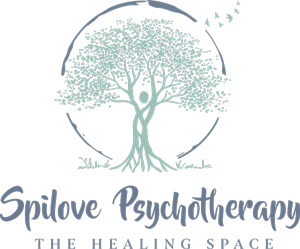3 DBT Skills to Enhance your Recovery
Do you find yourself having difficulty accepting the way life is right now? Maybe you find yourself experiencing intense emotions seemingly out of nowhere that feel hard to control. If so, you may benefit from learning new coping skills to enhance your recovery. Specifically, DBT skills can help teach new tools to help with emotion regulation, distress tolerance, mindfulness, and interpersonal effectiveness. If you find yourself feeling stuck in your recovery process, joining a DBT skills group can be a great way to learn new effective coping skills. Below are a few DBT skills that I’ve found to be especially helpful to enhance overall recovery:
Radical acceptance
Technically, in the distress tolerance module, radical acceptance helps us get through tough times without making things inadvertently more difficult for ourselves. We may not realize it, but radical acceptance can actually lead to change more effectively than staying in nonacceptance. One of the fundamental principles of DBT is that in order to change something, we must first accept what is. Radical acceptance helps us come to a mental space where we can tap into our inner wisdom to make effective choices given the facts of reality. When we are in nonacceptance, we are often driven by our emotions and feel stuck. Radical acceptance helps us to get un-stuck. Using this skill doesn’t necessarily take away the pain of reality, however, it does help prevent pain from turning into suffering.
To understand what acceptance feels like, we will first talk about nonacceptance.
When we are in a place of nonacceptance we are fighting reality as it is, which feels pretty bad. Nonacceptance may feel something like this:
We feel that things should be different than they are
We desperately want things to change that are outside our control
We may throw tantrums or act in ineffective ways
We may feel like giving up and experience a sense of hopelessness
Radical acceptance is all about accepting life on life’s terms.
Acceptance does NOT mean that we approve of the way things are. Radical acceptance simply means that we accept what is, wholeheartedly, with our entire being. We only have to accept the FACTS of reality, and reasonable assumptions about what may happen in the future. When we accept reality as it is, we may feel some intense emotions come up such as sadness, guilt, anger, etc., followed by a sense of calmness and clarity.
Radical acceptance is a skill that you may find you have to practice over and over. You may find that one minute you are in acceptance, and the next you are back in nonacceptance, and that’s okay! I would encourage you to continue to practice this skill, and you may have to turn your mind towards acceptance over and over.
Have you ever had to accept something that felt unacceptable? What did it feel like?
2. Checking the facts
Do you get stuck thinking about the worst case scenario? Or maybe you can’t stop thinking about something that happened in the past. If so, checking the facts may be a skill you will want to use to help challenge your thinking patterns to help regulate your emotions.
First, write down the facts of the situation.
Remember, JUST the facts. In other words, how would an objective 3rd party observer describe the situation? What about the situation can be observed through our 5 senses? Keep in mind that no one has ever observed the thoughts, intentions, or emotions of another person.
Next, ask yourself what you may be adding to the facts. What are you assuming about the situation?
Afterwards, write down any possible alternatives to the assumptions. List as many as possible!
Then, if you are jumping to conclusions about the situation, ask yourself how you would cope if the worst case scenario comes true. How likely is the worst case scenario to happen? What will most likely happen?
Try it out and notice any changes in intensity of emotions!
3. Opposite action
Opposite action is another great skill to help reduce the intensity of our emotions. The first step is to figure out what emotion is coming up for you. Next, ask yourself what the emotion wants you to do. For example, if you are feeling sad or depressed, your sadness may tell you to stay in bed or to cancel your plans for the day. To practice opposite action, you must act opposite to what your emotion wants you to do. For instance, instead of listening to the sadness and staying in bed, you get out of bed and get active. If you’re struggling with anxiety and fear, you may be tempted to avoid the thing that is causing you anxiety. To practice opposite action, you must avoid avoiding! In other words, to reduce your anxiety you do the thing you are anxious about (within reason). Maybe you start by taking small steps to challenge your emotions, and then over time you build up to the bigger things.






